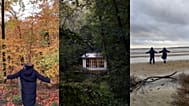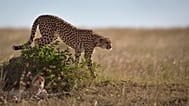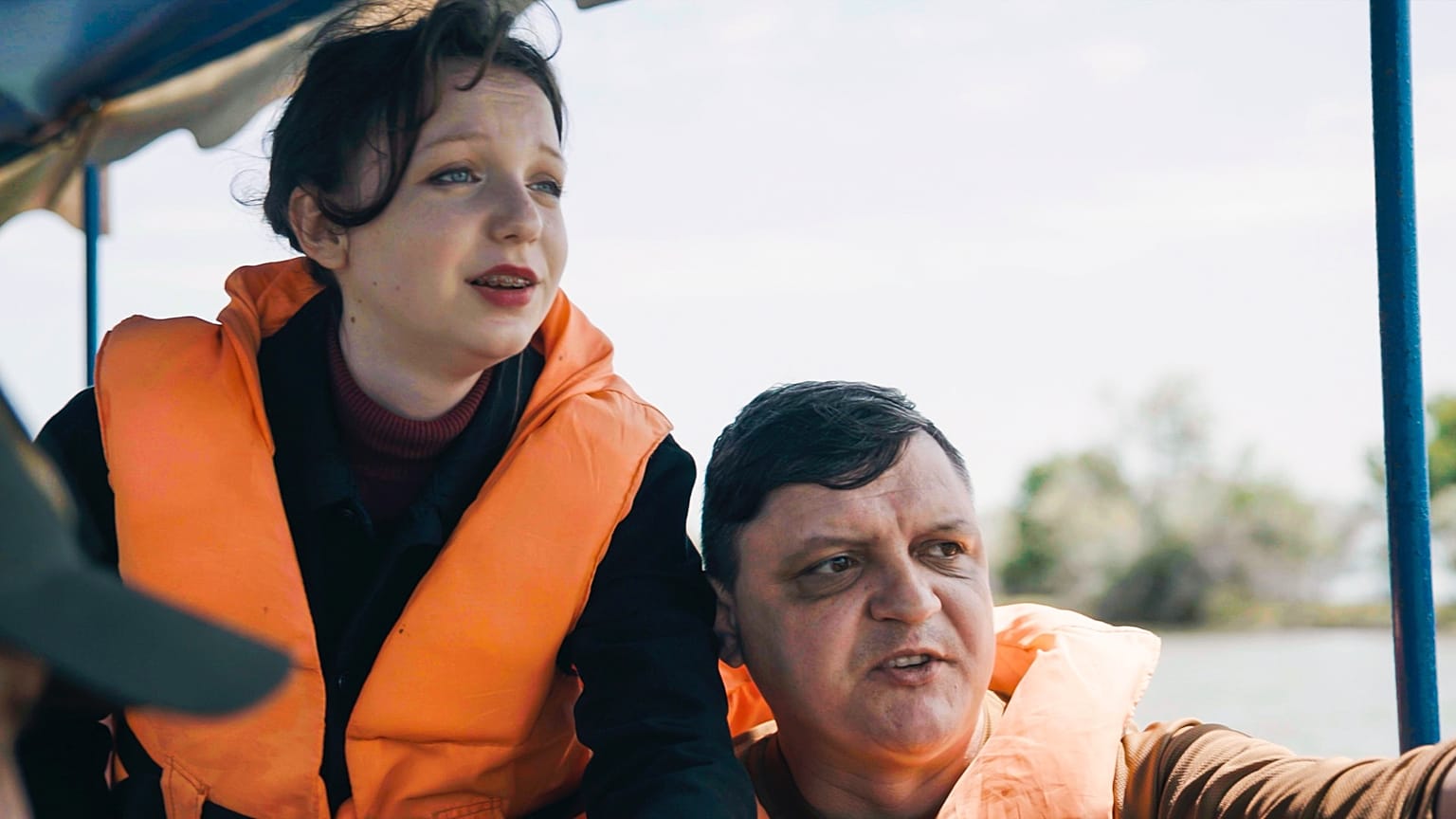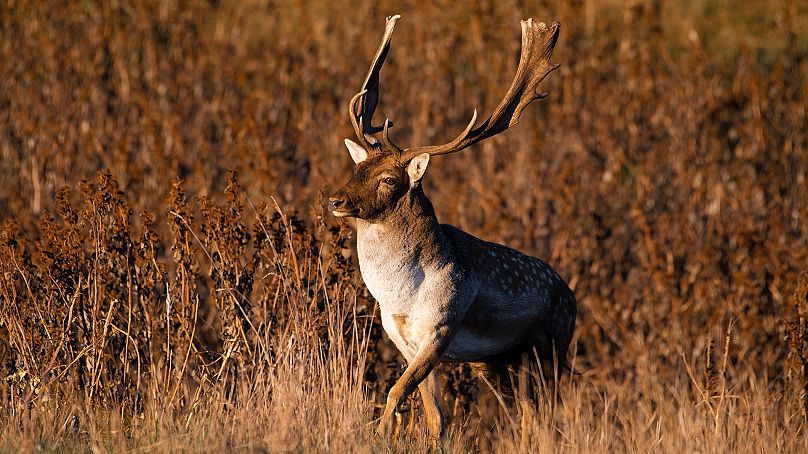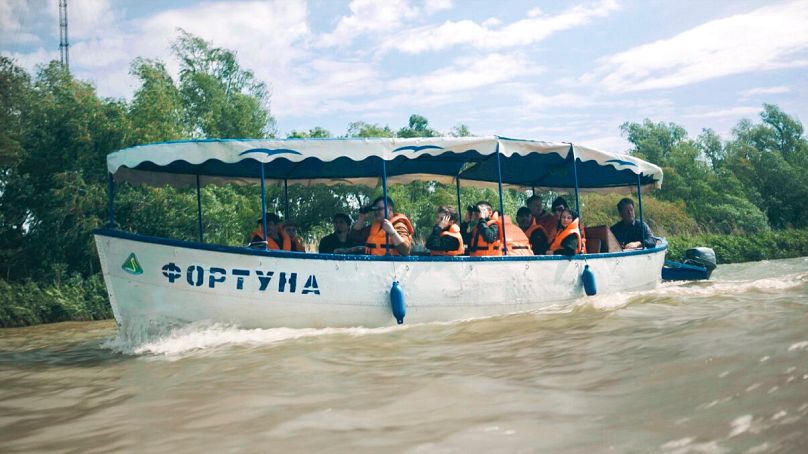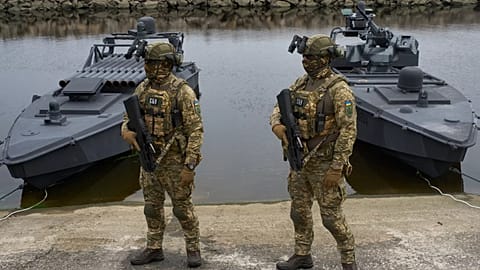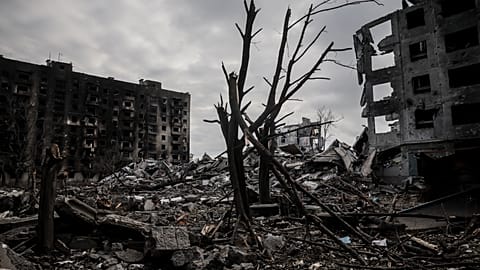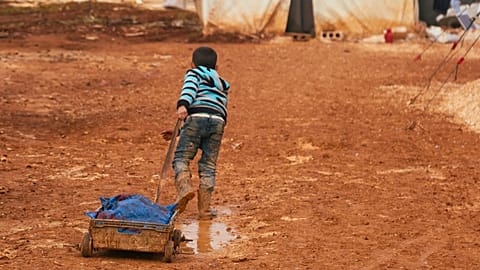Amid Russia’s invasion, rewilding efforts have emerged as a ‘much-needed symbol of resilience’ for Ukraine.
Russia’s full-scale invasion of Ukraine continues to devastate the country, with the civilian death toll passing 14,000 earlier this year, according to UN reports.
In September alone, around 214 civilians were killed and almost 1,000 injured.
The conflict, which is nearing its fourth year, has also wreaked havoc on the country’s natural landscapes - risking irreversible damage and severe habitat destruction.
However, Ukraine has turned to conservation effortsto provide a “much-needed symbol of resilience” and help nature recover after the war is over.
Ukraine’s environmental efforts
“Ukraine is dealing with a very difficult humanitarian situation, but nature is fundamental to people: you cannot separate us from nature,” says Rewilding Ukraine Executive Director Mykhailo Nesterenko.
“It directly affects us when water is polluted, or when villages are flooded because of destroyed dykes.”
Nesterenko adds that Ukraine’s nature is “as resilient” as its people and that rewilding efforts are already starting to have a positive impact.
Since Russia’s invasion, RewildingUkrainehas restored 13,500 hectares of wetlands and unforested grassland in the Danube Delta and adjacent Tarutino Steppe.
The team has also released more than 240 different species including hamsters, kulan (wild donkeys), steppe marmots, eagle owls and fallow deer, and built two breeding platforms for Dalmatian pelicans.
Since 2022, more than 70 offspring have been born to these introduced species.
“In a country where destruction is still ongoing, rewilding has become a rare story of renewal: a reminder that even in times of conflict, life finds a way to begin again,” Rewilding Ukraine says.
How rewilding is helping Ukraine’s soldiers heal
The psychological toll of the war has also been considerable, with Ukraine’s Ministry of Health stating earlier this year that 1.8 million soldiers and veterans may need psychological support.
Many soldiers experience symptoms of post-traumatic stress disorder (PTSD) and severe anxiety, as well as issues such as traumatic brain injuries.
In Spring this year, Rewilding Ukraine launched its Nature for Veterans initiative to help tackle this growing problem - offering soldiers and their families a chance to heal in the revitalised landscapes of the Ukrainian Danube Delta.
“Nature therapy” has been around for centuries, and was commonly used to help soldiers following the end of World War II. According to one study, published in the National Library of Medicine, nature-based immersion can help improve symptoms of post-traumatic stress disorder (PTSD).
Oleksandr, a disabled war veteran, is one of 48 soldiers who have visited the landscape with his wife.
“After everything we went through during the war, places like this are more than just a way to relax,” he says.
“We were able to pause, breathe deeply, and simply be together in peace and quiet. It was a chance to release some of the tension that had stayed with me since I was in combat.”
Oleksandr describes the visit as “incredibly valuable and much-needed”, adding that it allowed him to "reconnect" with his spouse without having to rush anywhere.
‘Green rehabilitation’ in Ukraine
Rewilding Ukraine says the war’s devastating impact on the environment highlights the need for urgent “green rehabilitation”.
It is currently focusing on the Tarutino Steppe, one of the last and best preserved pieces of steppe left in Ukraine and Europe.
In recent years, the team has worked with the community of Borodino and the Department of Ecology of Odessa to create a new national park comprising the Steppe and nearby areas.
The move will generate new jobs in the local area, enable further development of nature-based tourism and support traditional forms of farming based on grazing and haymaking.


